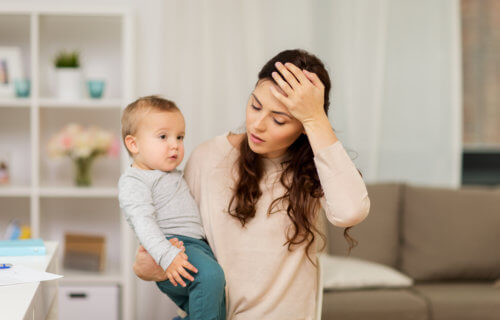HOUSTON, Texas — New research confirms that when it comes to family mental health dynamics, everything usually comes full circle. Researchers from the University of Texas Health Science Center at Houston report a two-way relationship between a mother’s and their children’s mental health. Mom’s mental health symptoms influence her child’s mental state, but the reverse holds true as well. The child’s mental health symptoms have an impact on the mother.
Study authors examined mother and child mental health symptoms over a 10-year period to reach these conclusions. Specifically, the investigation indicates that parental stress brought on by the near-unavoidable challenges that come with raising a child is the main element that partially links maternal depression with child anxiety and depression.
“By focusing on mother-child duos, we identified that maternal depression at an earlier time point predicted child anxiety and depressive symptoms at a later time point. Further, children who experienced anxiety and depressive symptoms at an earlier time point were more likely to have mothers who experienced depression at later time points,” says senior study author Daphne Hernandez, PhD, associate professor and Lee and Joseph Jamail Distinguished Professor in the School of Nursing, in a university release.
A mother’s depression can turn family life toxic
The research team explains that maternal depression often leads to feeling overwhelmed by the prospect of being a parent. This in turn produces hostility and lack of warmth within the greater family environment, eventually taking a toll on the child.
These findings are based on data collected for the ongoing Fragile Families study which began way back in 1998 with the intention of studying familial relationships between unmarried parents and their kids. Study authors believe this work can help better inform support and intervention services aimed at resolving familial situations in which both mother and child are dealing with anxiety and depression.
“A dual intervention, where both mother and child are receiving treatment together, in addition to their separate treatment plans, may be a successful approach for families where mothers and children exhibit symptoms of anxiety and depression,” Dr. Hernandez concludes. “Most importantly, implementing strategies to lower parental stress is vital.”
The study is published in the Journal of Affective Disorders.
